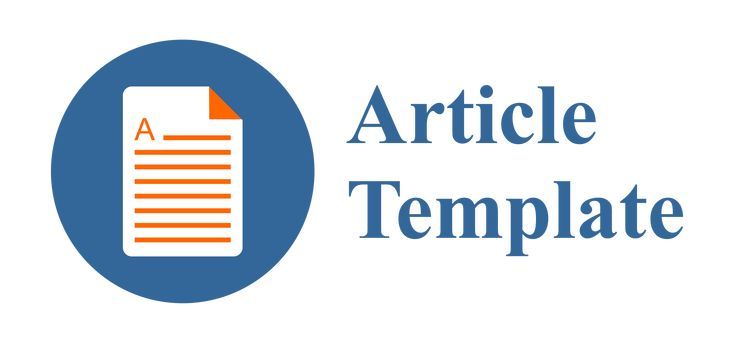Implementasi Hybrid App Framework dalam Membangun Aplikasi Kesehatan Mental berbasis Mobile
DOI:
https://doi.org/10.29408/edumatic.v7i1.17478Keywords:
hybrid app framework, health application, mobileAbstract
Currently, mental health issues in society have become an important focus, given the rise of mental issues, especially on social media. Currently, most of the use of social media is carried out using mobile technology, which also mostly uses the Android and IOS operating systems. This study aims to implement a hybrid app framework in building mobile-based mental health applications that can run on Android and IOS operating systems. The method used to build this application is the waterfall method, which is a systematic and sequential research method. The waterfall method is a step-by-step process that is well adapted to the situation in the field. The analysis is carried out through collecting data related to system needs and mental health by means of observation, interviews, and literature study. The system is designed using use case diagrams and activity diagrams. The testing phase is carried out by black box testing with the aim of finding incorrect functions, interface errors, data structure errors, performance errors, initialization errors and termination. Our findings show that the system can run well on Android and IOS operating systems, this is clarified through the results of black box testing that provides results as expected. This system is expected to be used by the wider community to help maintain mental health stability.
References
Abukhair, A., Herawati, N., Solihat, S., & Nur Ameilia Pratiwi, Y. (2022). Perancangan aplikasi curhat online untuk membantu dalam menyelesaikan gangguan kesehatan mental remaja. INTEGRATED (Information Technology and Vocational Education), 4(1), 19–26.
Aisyaroh, N., & Ediyono, S. (2023). an Overview of Adolescent Mental Health in Boarding Schools. Professional Health Journal, 4(2), 372-379.
Azhari, B. A., Mulyani, N., & Sapta, A. (2022). Forward Chaining: Metode untuk Mengembangkan Sistem Prediksi Penyakit Gigi dan Mulut. Edumatic: Jurnal Pendidikan Informatika, 6(2), 316–323. https://doi.org/10.29408/edumatic.v6i2.6376
Azzahra, A., Ramdhan, W., & Kifti, W. M. (2022). Single Exponential Smoothing: Metode Peramalan Kebutuhan Vaksin Campak. Edumatic: Jurnal Pendidikan Informatika, 6(2), 215–223. https://doi.org/10.29408/edumatic.v6i2.6299
Dharmawan, A. (2022). Android Based Application Test of English for International Communication (TOEIC) For Learning. Jurnal Elektro Lucea, 8(2), 67–74.
Hendriawan, M., Budiman, T., Yasin, V., & Rini, A. S. (2021). Pengembangan Aplikasi E-Commerce Di PT. Putra Sumber Abadi Menggunakan Flutter. Journal of Information System, Informatics and Computing, 5(1), 69. https://doi.org/10.52362/jisicom.v5i1.371
Kamilah, R. R. (2021). Efektivitas Aplikasi Untuk Gangguan Kesehatan Mental. Farmaka, 19(1), 54–61.
Listiyan, E., & Subhiyakto, E. R. (2021). Rancang Bangun Sistem Inventory Gudang Menggunakan Metode Waterfall Studi Kasus Di Cv. Aqualux Duspha Abadi Kudus Jawa Tengah. KONSTELASI: Konvergensi Teknologi Dan Sistem Informasi, 1(1), 74–82. https://doi.org/10.24002/konstelasi.v1i1.4272
Mulyani, S. (2017). Metode Analisis dan perancangan sistem. Bandung: Abdi Sistematika.
Musthofa, N., & Adhari Adiguna, M. (2022). Perancangan Aplikasi E-Commerce Spare-Part Komputer Berbasis Web Menggunakan CodeIgniter Pada Dhamar Putra Ccomputer Kota Tangerang. OKTAL : Jurnal Ilmu Komputer Dan Science, 1(3), 199–207.
Octavina, M. T., & Susanti, S. (2021). Pengembangan Media Interaktif Program Lectora Inspire Berbasis Android Pada Materi Jurnal Penyesuaian Perusahaan Jasa Kelas Xi Akuntansi Dan Keuangan Lembaga SMK Negeri 10 Surabaya. Jurnal Pendidikan Teknologi Dan Kejuruan, 18(2), 142-151. https://doi.org/10.23887/jptk-undiksha.v18i2.34341
Oktaria, N., Anjani, N., Permata Listi, T., Dewangga, T., Faujiyah, Y., & Eka Sevtiyuni, P. (2019). Perancangan Sistem Informasi Mi-Cure Berbasis Aplikasi Mobile. Annual Research Seminar (ARS), 5(1), 136–140.
Paisal, P., Hairani, B., & Annida, A. (2020). Pengembangan Aplikasi Tes Kesehatan Mental Umum Berdasarkan SRQ-20 WHO. Jurnal Pengabdian Kepada Masyarakat ITK (PIKAT), 1(1), 13–20. https://doi.org/10.35718/pikat.v1i1.289
Rozali, Y. A., Sitasari, N. W., & Lenggogeni, A. (2021). Meningkatkan Kesehatan Mental di Masa Pandemic. Abdimas: Jurnal Pengabdian Masyarakat, 7(2), 109–113. https://doi.org/10.47007/abd.v7i2.3958
Shadiq, J., Safei, A., & Loly, R. W. R. (2021). Pengujian Aplikasi Peminjaman Kendaraan Operasional Kantor Menggunakan BlackBox Testing. Information Management For Educators And Professionals: Journal of Information Management, 5(2), 97-110. https://doi.org/10.51211/imbi.v5i2.1561
Suendri. (2019). Hashing Argon2 Untuk Keamanan Password Pada Sistem Berbasis Web Menggunakan PHP. JISTech (Journal of Islamic Science and Technology), 4(1), 46–56.
Suprayogi, B., & Rahmanesa, A. (2019). Penerapan Framework Bootstrap Dalam Sistem Informasi Pendidikan SMA Negeri 1 Pacet Cianjur Jawa Barat. TEMATIK, 6(2), 23–30. https://doi.org/10.38204/tematik.v6i2.244
Susilo, M. (2018). Rancang Bangun Website Toko Online Menggunakan Metode Waterfall. InfoTekJar (Jurnal Nasional Informatika Dan Teknologi Jaringan), 2(2), 98–105. https://doi.org/10.30743/infotekjar.v2i2.171
Sutanto, S., Amiruddin, D., & Nugraha, G. (2022). Rancang Bangun Aplikasi Skrinning Kesehatan Mental Remaja Berbasis Web Di RSUD DR.Drajat Prawiranegara Dengan Menggunakan Metode Analytic Hierarchy Process (AHP). Journal of Innovation and Future Technology (IFTECH), 4(1), 29–38. https://doi.org/10.47080/iftech.v4i1.1813
Voutama, A. (2022). Sistem Antrian Cucian Mobil Berbasis Website Menggunakan Konsep CRM dan Penerapan UML. Komputika : Jurnal Sistem Komputer, 11(1), 102–111. https://doi.org/10.34010/komputika.v11i1.4677
Wijaya, Y. D., & Astuti, M. W. (2021). Pengujian Blackbox Sistem Informasi Penilaian Kinerja Karyawan PT INKA (PERSERO) Berbasis Equivalence Partitions. Jurnal Digital Teknologi Informasi, 4(1), 22. https://doi.org/10.32502/digital.v4i1.3163
Wiro Sasmito, G. (2017). Penerapan Metode Waterfall Pada Desain Sistem Informasi Geografis Industri Kabupaten Tegal. Jurnal Informatika:Jurnal Pengembangan IT (JPIT), 2(1), 6–12.
Downloads
Published
How to Cite
Issue
Section
License
All articles in this journal are the sole responsibility of the authors. Edumatic: Jurnal Pendidikan Informatika can be accessed free of charge, in accordance with the Creative Commons license used.

This work is licensed under a Lisensi a Creative Commons Attribution-ShareAlike 4.0 International License.




